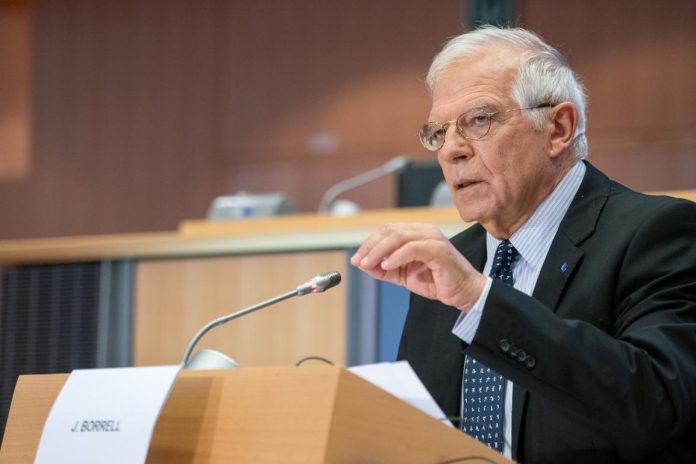Greater consistency in EU policy on the crisis is needed after several disastrous splits among member states convinced many leaders and citizens in the region that the E.U. is an unserious and hypocritical foreign policy actor, according to Josep Borrell’s statements.
“We have been far too absent. We have delegated the solution of this problem to the United States. But Europe must become more involved,” said Josep Borrell, the European Union’s high representative on foreign affairs and security policy.
Borrell made a statement whose main message was to say “no” to three things and “yes” to three others. For instance, he said no to any forcible transfer of Palestinians from Gaza, to the permanent occupation of Gaza by the Israeli military or any change in its size, and to the return of Hamas. There must also be a “Palestinian Authority,” which can only be an improvement over what the Palestinian Authority is at the moment. This solution must be created “with a legitimacy to be defined and decided upon by the UN Security Council.”
One of the key conclusions concerns the Arab world. Arab countries should also become a more active participant in supporting this authority, and the E.U. should also become more rapidly involved in the region, in particular in the creation of a Palestinian state.
Borrell’s efforts to forge a clearer and more unambiguous EU position have been repeatedly criticised by representatives of these states – after all, it is the member states that determine policy. Borrell is correct in saying that the E.U. has been too little engaged in this task in recent years. By doing so, he implies that the Palestinian issue could be marginalised and bypassed, and that would be a significant loss of European influence. The six provisions thus clearly demonstrate how untenable past European policy has been, but they also show that much can still be fixed, much can be succeeded. The difficulty arises, however, in that some of the protections it has resurrected are probably no longer available as a result of this neglect.
These intentions provide a good example of Borrell’s albeit rough and ready approach to his work. As a Spanish socialist, he has an excellent understanding of the Arab world and the relative sympathy for the Palestinians compared to the solidarity of Germany, Austria and the Czech Republic with Israel.
Europe is a garden. We have built a garden. Everything works. It is the best combination of political freedom, economic prosperity and social cohesion that humankind has been able to build – the three things together. The rest of the world is not exactly a garden. Most of the rest of the world is a jungle, and the jungle could invade the garden.
Following the statement in 2022, Borrell was criticised for questioning the European Commission as a geopolitical system. Borrell responded on his blog:
But now war is back in Europe and around the globe we see a transformation of geopolitics. We face a world of power politics with the weaponisation of interdependence and more examples of countries using force, intimidation and blackmail to get their way. The growth of this lawless world and disorder is what I meant when talking about the ‘jungle’. My reference to ‘jungle’ has no racist, cultural or geographical connotation. Indeed and unfortunately, the ‘jungle’ is everywhere, including today in Ukraine.
Thus, according to one view, overcoming colonial Eurocentrism requires efforts to de-centralise and provincialise the European experience in comparison to other parts of the world, and then more inclusion and more equitable policy-making. Creating a more coherent and persuasive foreign policy towards the Middle East suggests that the European Union should pay much more attention to such advice, as Borrell suggests.
